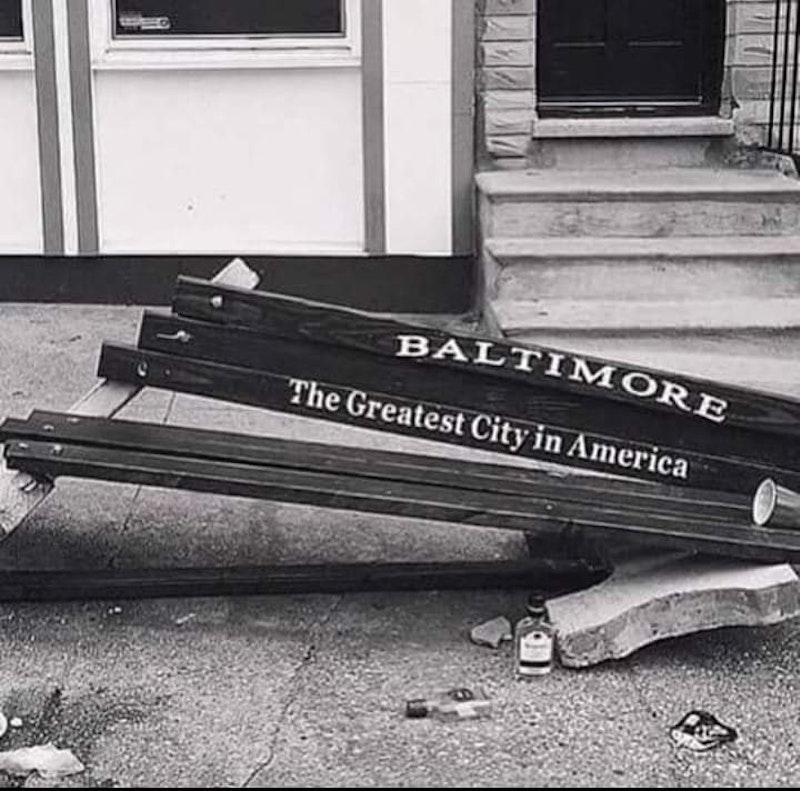There’s a perception that many aspects of our American way of life aren’t necessarily great. Something dwells under the surface that makes it hard to imagine a land where things are much less normal. The realization that you can’t make something greater than what it is. We sell bombs to people all the time, and we get indignant when they actually use them against other people. We have a handful of rich people and millions of others who buy lottery tickets, wishing to be like them. You can witness the decline firsthand in major cities and tiny towns across the country. Air and water are not free here.
Our culture is dwindling down to a few inalienable rights and a handful of privileges and freedoms. Our way of life is out of step with the rest of the world. We allow barely functioning miscreants and geriatric cretins to run our lives; we even go so far as to vote them into office without a thought of who they are. It’s a tale of two Americas. One for the rich and the other for the rest of us. I guess it depends on many factors, but I wouldn’t truly know how the other half lives. Like the P. Diddy and Jeffrey Epsteins of the world, they got something on us, only to accept what we see and hear as absolute truth. Old money and blue bloods still rule what’s left. Suckers like the con, like kids love candy.
Baltimore’s a prime example of the disparity between the classes. The middle-class get squeezed between the crappy sandwich of rich and poor, which makes it harder to survive every day. Those who live in Baltimore are fiercely loyal to their quirky city. A far cry from this “our town” mentality that existed a century ago before the industrial revolution’s decline and eventual modern technology that took over everything in our lives. The play Our Town, written by Thornton Wilder in 1938, depicts a dreamy place of peace and quiet in a quaint, tiny town. The worst thing you could imagine is the choirmaster getting drunk again, or the church ladies at a hen party gossiping about the widow and the parson. Or maybe who was going off to fight in the big war and which young soldiers returned home in a box draped by the American flag. Who doesn’t yearn for those make-believe days when everything was plain and simple and world wars were easier to discern who the enemy really was?
Today is a different story. It’s hard to tell who the enemy is, there’s so many bad guys out here. Things are broken faster than they’re fixed, and everything’s falling apart. It’s normal nowadays to ponder that we’re doomed to repeat history yet again. My hometown of Baltimore is now a powder keg of dynamite, just waiting for the next disaster to explode. The powers that be making you believe that it’s a race issue, a police thing, the crime factor, a gun problem, illegal drugs, politics, sex discrimination, or something else. All this is meant to keep you from the facts that are ignored by the media and the politicians who are supposed to have the best interests of the public in mind. One glance at what they created will tell us a different story. It’s hard to imagine how naïve we can be.
Originally, the story of Our Town was conceived as a play in three acts with a beginning, middle, and end, but you might not notice it because every day appears to be the same as it ever was. It takes place in the imaginary town of Grover’s Corners, New Hampshire, in the early-1900s. The epitome of a picturesque American town is somewhere between the idyllic countryside and the big, bad city in the middle of nowhere. A place where everyone knows everybody and everything that goes down in the daily lives of the town folks who live there. The paperboy and the milkman are equally important as the old doctor and the librarian.
For me, it’s reminiscent of growing up in Baltimore, where we had colorful characters and quant neighborhoods that never seemed to change. It's a romanticized tale of innocence and simplicity that seems too good to be true. But beneath the surface lies a dark, foreboding story of death, despair, and madness. Just like real life, without the pain and suffering. In the play and consequent movies, the stage manager narrates the coming and going of the townsfolk as the story unfolds.
A 12-year-old ghost girl named Emily leaves the cemetery to relive her birthday again, and hangs out with the other dead citizens who observe life from the other side. The deceased try to dissuade little Emily from going back to the land of the living. The full moon’s beautiful, and the sunshine’s eternal, yet the living don't know how to appreciate life, as she laments; they just don’t understand. Like life itself, a timeless drama that takes us back to our own little town deep inside the past where we dwell.

